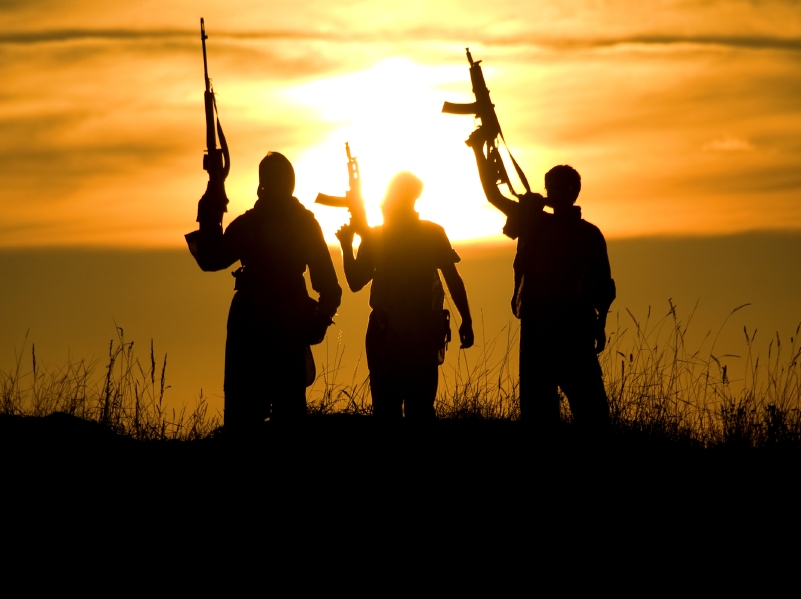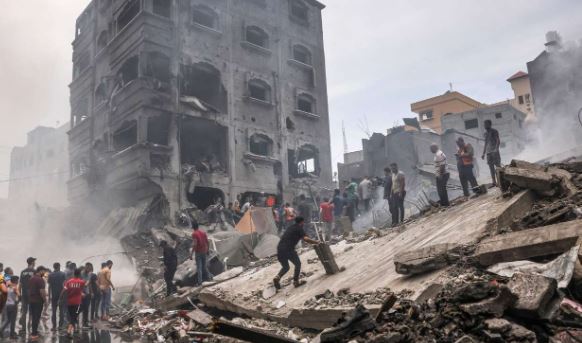 Parler
Parler Gab
Gab
- The U.S. State Department removed Hay'at Tahrir al-Sham (HTS), formerly affiliated with al-Qaeda, from its Foreign Terrorist Organizations list, citing its reported dissolution and Syria's renewed anti-terrorism stance.
- President Donald Trump signed an executive order on June 30 lifting most U.S. sanctions on Syria following the fall of Bashar al-Assad and the rise of new leadership under Ahmad al-Sharaa, a former HTS member.
- The administration aims to promote Syrian stability and peace through diplomatic and economic engagement, while maintaining pressure on Assad loyalists, ISIS and Iranian proxies.
- The executive order directs a review of Syria's designation as a State Sponsor of Terrorism and re-evaluates the individual terrorist designations of HTS and Sharaa.
- The Trump administration framed the moves as a chance for Syria to rebuild and stabilize, while emphasizing continued U.S. vigilance on key security issues, including terrorism and regional alliances.
Trump wants to give Syria a chance to achieve "stability and peace"
The delisting of HTS comes as part of a renewed push to give Syria a chance at "stability and peace." On June 30, Trump signed an executive order to formally lift most sanctions on Syria following the ouster of longtime dictator Bashar al-Assad and the rise of a new government led by former militant leader Ahmad al-Sharaa. The executive order permits the relaxation of export controls and foreign assistance restrictions, directs the State Department to review Syria's designation as a State Sponsor of Terrorism, calls for a reevaluation of HTS's and Sharaa's individual designations as Specially Designated Global Terrorists and encourages exploring sanctions relief at the United Nations. "This is in an effort to promote and support the country's path to stability and peace," White House press secretary Karoline Leavitt said before the signing ceremony. "He's committed to supporting a Syria that is stable, unified and at peace with itself and its neighbors." However, the White House also emphasized that the policy does not extend to all actors within Syria. Sanctions remain in place on Assad himself, his inner circle, human rights abusers, drug traffickers, individuals linked to chemical weapons, ISIS members and Iranian proxies. "President Trump wants Syria to succeed – but not at the expense of U.S. interests. While seeking to reengage constructively, this Administration will continue to guard against all threats and monitor progress on key priorities: taking concrete steps toward normalizing ties with Israel, addressing foreign terrorists, deporting Palestinian terrorists and banning Palestinian terrorist groups, helping the United States prevent a resurgence of ISIS and assuming responsibility for ISIS detention centers in northeast Syria," the White House wrote in its fact sheet. Visit Terrorism.news for stories related to this. Watch this report about the Houthis joining Iran in plotting revenge against Israel. This video is from the channel The Prisoner on Brighteon.com.More related stories:
Ex-CIA officer warns: 1,000 Al-Qaeda fighters in U.S. as open borders fuel terror threat.
From Al-Qaeda to Aleppo: How Syria’s new leadership threatens global security.
Iranian-backed Houthi, al-Qaeda plan SUICIDE ATTACKS against Western targets.
Barnes & Noble hosts free download of al-Qaeda bomb-making manuals for terrorists.
Sources include: TheEpochTimes.com WhiteHouse.gov Brighteon.comDenmark donates satellite communication systems to Ukraine
By Ramon Tomey // Share
Israeli strikes kill 88 Palestinians in 24 hours as Gaza faces catastrophic hunger crisis
By Belle Carter // Share
Ford recalls over 850,000 vehicles due to risk of engine stall from faulty fuel pumps
By Laura Harris // Share
Federal raids on California marijuana farms uncover child labor, spark violent clashes
By Ava Grace // Share
Popular zero-calorie sweetener may increase stroke risk, study warns
By Ava Grace // Share
Governments continue to obscure COVID-19 vaccine data amid rising concerns over excess deaths
By patricklewis // Share
Tech giant Microsoft backs EXTINCTION with its support of carbon capture programs
By ramontomeydw // Share
Germany to resume arms exports to Israel despite repeated ceasefire violations
By isabelle // Share










